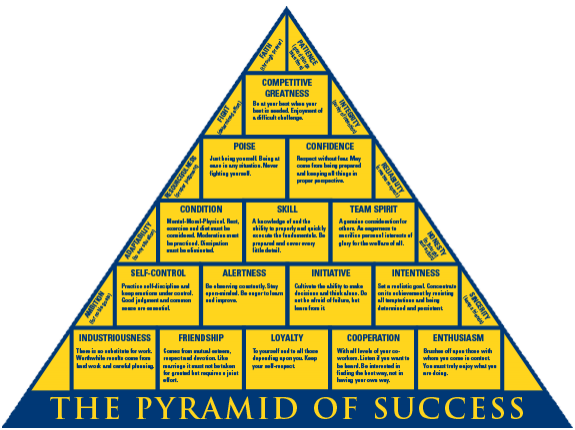
A number of years ago, I was working for a pretty successful Classic Rock station in a top 25 market. The PD found a better job (it truly was), gave notice, and the search was on. Except I got the call from the station’s GM asking me what sounded like a trick question:
“This station is very consistent, we have a strong morning show, and the competition isn’t what it used to be. So, how good a programmer do we need anyway?”
And he was serious. Usually I have an answer for pretty much everything, but this time I found myself at a loss for words. How do you explain that a PD does so much more than gets ratings? She helps create the internal culture. He is at the core of content innovation. She knows when the staff is stressed and needs a break. And he is attuned to when it’s time for a kick in the butt.
These days, programmers have never been more important to the enterprise. Sure, it’s helpful to have a PD who is proficient at music scheduling and filling out time sheets. But given the sensitivities of our times and the stress the entire industry is facing, PDs need traits that combine the skills of a psychologist with the diplomacy of an ambassador.
And that’s where the skill set of Ted Lasso enters the fray.
If you haven’t seen this show on Apple TV+, you’re missing more than just a hot sitcom. Ted Lasso won all the key Emmy Awards earlier this month for a comedy series, making Apple a very proud parent.
I’ve been late to the Ted Lasso party, but it’s not very hard to catch up and catch on. No spoilers – it’s a simple fish out of water story about a mid-level college football coach in Kansas who ends up taking over a troubled UK “football” team – as in soccer.
 “Ted” is played by the creative force behind the show, former SNL alum, Jason Sudeikis. As the coach of AFC Richmond, he is at once corny and clever.
“Ted” is played by the creative force behind the show, former SNL alum, Jason Sudeikis. As the coach of AFC Richmond, he is at once corny and clever.
Ted’s lack of experience in the sport seems like an obvious disaster waiting to happen. But his personal qualities transcend soccer smarts. He is intuitive, charming, and deceptive – all at the same time.
For a back-in-the-pack streaming platform like Apple’s, a hit show is much-needed. When you’re up against Netflix, Hulu, and Disney+, you’d better put some points up on the board.
Last year for Apple, it was Morning Show starring Reese Witherspoon, Jennifer Aniston, and Steve Carell (back for Season 2). And now Ted Lasso provides an important bookend to Apple’s initial success.
For radio programmers, the show provides endless coaching lessons at all types of radio stations, no matter the format or market. The pilot episode of season one of Ted Lasso provides object lessons for PDs. As you watch Ted’s experience in England unfold, you can easily follow every move Ted is making, as he deftly surprises everyone with how truly smart, prescient, and disarming he is.
Here are my 10 Ted Lassoisms – a Master Class of radio programming:
- An optimist for our pessimistic times. Not only does Ted’s irrepressible attitude resonate with his team, his town (Richmond), and his bosses, it works with us viewers and has no doubt driven millions of Apple TV+ subscriptions. The world may suck, the news is depressing, and this soccer team has been historically mediocre. But with Ted Lasso in the locker room, all is right with the world. There is perspective about what really matters.

- Manage up and down. This is such a valuable skill that few PDs master. And it is a key part of Ted Lasso’s skill set. It’s the ability to score points with the team (i.e., radio personalities) while keeping management happy. Or at bay. Knowing how to work both ends of the spectrum is key to being successful, even when it means insulating one from the other.
- It’s about culture. In Ted’s world, a team doesn’t reach its potential until there’s a healthy vibe in the locker room. In the case of AFC Richmond, it takes a nanosecond to realize Ted has inherited myriad issues with the team, all of which need to be addressed before there can be a consistent winning atmosphere. And it also is about addressing systemic and highly personal problems in the front office.
- The Wooden Way. In the very first episode, Ted hangs inspirational posters in his office. And one of them is iconic UCLA coach John
 Wooden’s “Pyramid of Success.” If you don’t know about Wooden, he was the true “Zen master,” dubbed “the Wizard of Westwood,” and named ESPN’s Coach of the Century. His steady, calm, and knowing leadership is at the core of a coaching curriculum still in place today. Coach Wooden believed in perfecting play in practice. During games, he was calm and stoic, allowing his teams to play the game the way they were coached. Not only is Lasso a Wooden fan, so is Jason Sudeikis.
Wooden’s “Pyramid of Success.” If you don’t know about Wooden, he was the true “Zen master,” dubbed “the Wizard of Westwood,” and named ESPN’s Coach of the Century. His steady, calm, and knowing leadership is at the core of a coaching curriculum still in place today. Coach Wooden believed in perfecting play in practice. During games, he was calm and stoic, allowing his teams to play the game the way they were coached. Not only is Lasso a Wooden fan, so is Jason Sudeikis. - Every player is an individual. While Ted is all about team, he respects the fact each player is an individual with their own unique set of skills, problems, and demons. Early on, they learn he has their backs, and that he’s thinking about them. At an early point in his time with AFC Richmond, Ted gives each of his players a present – a book selected especially for each one of them.
- Help can come from anywhere. The team’s “kit man” (equipment manager) is a young guy named Nathan who is simultaneously ignored and bullied by the team. Ted realizes the importance of everyone in the organization, tapping into Nathan’s intelligence, intuitiveness, and ingenuity. The key lesson here is that you just never know who will have a great idea. Every person in the organization matters.
- Don’t sweat the wins and losses. It blows his team and his bosses away every time Ted claims he doesn’t really care about a game’s outcome. Yet, he staunchly avers that until the culture is addressed (see #3), it doesn’t matter. But it also takes pressure off his team. He doesn’t overreact to losses…or wins. And that’s healthy. Imagine a PD who says she doesn’t care about the weeklies or is not upset by a bad book. Ted sees the larger picture – the health and welfare of his team. His favorite “animal” is a goldfish. Why? Because it has a memory of just 10 seconds – it lets go of whatever’s bothering it, and gets back to work. A bad weekly? OK, let’s address our issues and look ahead to the next test.
 It’s not about stats and analytics – Ted just believes. You can see it in the “BELIEVE” sign that hangs crookedly in his office. The standings, tendencies, averages mean nothing to Ted. The difference between winning and losing boils down to a team and the collective will of its players. While that attitude initially makes fans of AFC Richmond crazy, it is Ted’s belief fabric that separates him from the pack.
It’s not about stats and analytics – Ted just believes. You can see it in the “BELIEVE” sign that hangs crookedly in his office. The standings, tendencies, averages mean nothing to Ted. The difference between winning and losing boils down to a team and the collective will of its players. While that attitude initially makes fans of AFC Richmond crazy, it is Ted’s belief fabric that separates him from the pack.- Community matters. Ted realizes that just winning over the locker room and the C-suite aren’t enough. To develop a winning program, he needs to charm and engage the community. And he does it in small, but impactful ways. He may be new to town, but Ted knows people are people. He says hello to everyone he sees, meets, and encounters. He takes the time to get to know everyone, and he listens to them. As much as his inexperience and can-do attitude make them roll their eyes, the townspeople grow to love Ted for who he is, not his won-loss record.
- You’d better have thick skin. Especially on the front end of his tenure with the team, Ted is met with nasty, merciless criticism by the tabloids and the town. His nickname – “wanker” – becomes an incessant chant at games and everywhere he goes, even when he’s with his family. And yet, Ted seems nonplussed. He hears it, of course, but he doesn’t let it deter him or his agenda.
Watching Ted Lasso should be mandatory video streaming for every radio station program director in the country. It’s impossible not to glean these lessons and other insights from this clever show, even if you coach at the pro level.
In fact, a story in the Wall Street Journal by Ben Cohen this summer features a headline that says it all:
“Why Real Coaches Want to Be Ted Lasso”
He quotes Utah Jazz coach Quin Snyder who claims “(Ted Lasso) should be required watching for coaches.”
Steve Kerr, head coach of the Golden State Warriors (pictured right), concludes that “if there is a lesson on the show, it is that culture beats scheme. The guy knows nothing about soccer but he has created a great atmosphere with the club that leads to winning.”
lesson on the show, it is that culture beats scheme. The guy knows nothing about soccer but he has created a great atmosphere with the club that leads to winning.”
Ted Lasso is a coach that has a knack for building trust bridges – with his team, with his superiors, with his fans.
Aspiring to hire radio PDs with the “Lasso DNA” wouldn’t be a bad idea, especially in the tenuous environment in which we now live.
Better than scheduling perfect logs.
You can get a 7-day free trail of Apple TV+. by clicking here. Then it’s $4.99 a month, so don’t forget to cancel if you don’t intend to pay for this service.
- Media And Technology In 2025: Believe It Or Not! - April 18, 2025
- In Radio, You Just Never Know - April 17, 2025
- The Secret To Making A Great Podcast (And Great Radio) - April 16, 2025




Wonderful column Fred.
That’s such great list you culled from the show. Especially Number 7 about not over reacting to the numbers. Doing so ignores essential truisms about how statistics and ratings work. That’s a hard one to sell to the gang upstairs I’ve found but it’s important to sell it to the team, lest everyone plays as if the sword of Damocles is hanging over their head. Hard to have any fun that way.
Anyway, thanks for this one. A real keeper. Great set up. And goallllllllll!
Appreciate this, Paul, from one programmer to another. I wish I would have had more “Lassoisms” when I was a PD. It is wonderful to have something like “Ted” to aspire to.
You nailed it again, Fred. Especially the comment from the GM wondering about the need for a strong programmer. You know how many people think they can do this? All of ’em. I once worked for a VP who had a vision for one of our stations, but he never told me what that was. My vision was different and as we advanced the plot I was suddenly met with resistance from that VP. Never mind the research. Never mind the tenacity of the staff. He all of a sudden announced his vision was the opposite of what we were doing. Changes were made, expenses were added and the station was a dud. It’s water under the bridge, but all of the things about Ted Lasso may not sit well with the next GM. (We changed managers in the midst of things and the new guy was a train wreck who apparently knew what the VP was up to.) Ted Lasso is such a great example of what can go right. His boss (team owner) supports him 100% and that’s the other way it HAS to be for success. Please don’t let that scenario be left out.
Thanks, Dave. The Ted Lasso story is a fable, of course. It’s actually very reminiscent of “Major League” where the team in question – the Cleveland Indians – is engineered to fail. Ted’s AFC Richmond team is in much the same boat, and a yahoo from Kansas who knows American football is a lock to tube this soccer team. In the show, Ted’s boss is betting on his failure, and yet, he perseveres, intent on winning her over.
No, this is a sitcom, after all. But one whose heart is firmly in the right place. Ted won’t change the world, much less the radio industry. But if a PD or two pick up a good habit from Ted Lasso, there just might be some progress. Appreciate you commenting.